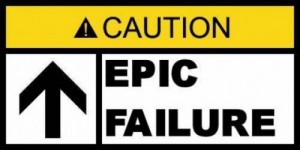by | ARTICLES
Ruling from the Pruitt vs Burwell Obamacare case.
Summary: Federal Courts just hammered Obamacare yet again. The judge sided with the DC panel opinion that the language referring to “state exchanges” meant just that — State, not federal. This strikes against the federal exchanges set up later by the IRS.
From the ruling
“The court holds that the IRS Rule is arbitrary, capricious, an abuse of discretion or otherwise not in accordance with law, pursuant to 5 U.S.C. §706(2)(A), in excess of statutory jurisdiction, authority, or limitations, or short of statutory right, pursuant to 5 U.S.C.§706(2)(C), or otherwise is an invalid implementation of the ACA, and is hereby vacated. The court’s order of vacatur is stayed, however, pending resolution of any appeal from thisorder.It is the order of the court that the motion of the defendants for summary judgment(#91) is hereby denied. The motion of the plaintiff for summary judgment (#87) is hereby granted.”
ORDERED THIS 30th DAY OF SEPTEMBER, 2014.
Honorable Ronald A White
US District Judge
Eastern District of Oklahoma
Read the whole ruling here
Other info on Pruitt vs Burwell:
— A Citizen’s Guide to the Obamacare Cases
— NRO: Federal Courts Deal Another Blow to Obamacare
— Chief Architect of Obamacare Argued Law Was Limited to State Exchanges. Twice.
by | ARTICLES, BUSINESS, ECONOMY, FREEDOM, GOVERNMENT, OBAMA, POLITICS, TAXES

Discussion began heating up again about the “internet tax” last week when lawmakers pushed back the moratorium on Internet access taxes — set to expire on Nov. 1 — until mid-December during the lame-duck session. In the meantime, let’s call it out for what it really is: a revenue grabber masquerading as “fairness”.
Last year the Senate passed the online sales tax bill, formally known as the “Marketplace Fairness Act”. There is nothing fair about this act. It is a back-door way for states to add additional levies on their citizens under the guise of leveling the playing field . From an accountant’s perspective, here’s how:
Most proponents of the bill suggest that there is somehow a dearth of tax revenue from which states are suffering terribly. This sentiment was echoed at the time in the pages of the WSJ by Arthur Laffer. He wrote that “the exemption of Internet and out-of-state retailers from collecting state sales taxes reduced state revenues by $23.3 billion in 2012 alone, according to an estimate by the National Conference of State Legislatures. The absence of these revenues has not served to put a lid on state-government spending. Instead, it has led to higher marginal rates in the 43 states that levy income taxes”.
But this is simply and patently untrue. State legislatures have always set their tax rates with the full understanding that they would not actually collect that supposed $23.3 billion of internet “slippage”. It’s not like there is a line item in state budgets that lists “uncollected online tax” or “tax cheats” with a number attached. Sales tax is one of many levies whose revenues positively fund government spending. This online tax, if passed by the House next and signed into law, will just be yet another tax (and therefore revenue) for the coffers. Higher marginal rates exists because state-government spending levels are higher, not because of some “absence of tax” nonsense that forces states to raise rates.
In our states’ budgets, current taxes rates (income + sales, if applicable) are set at levels appropriate to cover the calculations of state spending. 49 out of 50 states require a balanced budget. These states are fully aware that taxes are “avoided” (internet and out-of-state) and therefore don’t even count them in their budget calculations. So there is no concrete “absence of revenue”. Instead, by passing this new internet tax, you are merely giving the states a free reign to add a tax without taking the political heat for it, under the guise of “fairness”.
Looked at it another way, it is unconscionable for Congress to pass this legislation without requiring that states lower their marginal rates so that the new tax makes everything revenue neutral. Higher marginal rates as they are already burden taxpayers. This internet tax doesn’t fix anything — because there is nothing in their budgets to be “fixed”. True tax reform (a true “fix”) always means broadening the base and thereby reducing the overall burden of taxes. Instead of that, what we have with this bill is a revenue grab.
Another fallacy for supporters is that including the internet tax in transactions is simply a matter of adding a quick, little tax line where there was none before. But it is highly irrational for legislators to believe that compliance with multiple tax jurisdictions for vendors will be an easy and unburdensome process. The recordkeeping will be excruciating.
This tax nightmare is similar to the 1099 fiasco originally included in Obamacare a couple of years ago, which expanded the reporting requirements to include all payments from businesses aggregating $600 or more in a calendar year to a single payee. Because of the insurmountable amount of reporting and paperwork that would have been associated with it, that provision was highly protested and swiftly and subsequently repealed.
The effect of distressing our businesses to comply with this online tax collection will be a drag on the economy. Can you imagine vendors needing to figure such things as whether marshmallows are a taxable food/candy in some jurisdictions while it might be a non-taxable food in others? To think that software can seamlessly make this distinction is ludicrous, especially software run by the government. When has the government ever actually streamlined anything? And implementing such a convoluted tax while businesses are already having to deal with sorting out the egregious complexities of Obamacare compliance will certainly hurt businesses even more.
Internet tax collection for 9,600 local tax jurisdictions or even just 50 states is too much. If such a tax is to be passed, it should be either a tax in which every state accepts one set of rules OR a tax payable to the state-of-sale only — which would ultimately be better for tax competition overall.
The economy is suffering enough. Adding yet another tax for citizens, which also requires burdensome compliance for businesses, is not the way to do it.
Laffer was correct regarding taxes when he observed that “the principle of levying the lowest possible tax rate on the broadest possible tax base is the way to improve the incentives to work, save and produce which are necessary to reinvigorate the American economy and cope with the nation’s fiscal problems”. But the “internet tax” doesn’t do that. In its current form, it is just another revenue stream for our bloated, overspending government.
This is no “Marketplace Fairness Act”. It is an atrocity.
by | ARTICLES, BLOG, GOVERNMENT, HYPOCRISY, OBAMA, POLITICS

Whatever shred of actual relevancy Chuck Todd hoped to achieve as the new moderator of “Meet the Press” just collapsed during his MSNBC interview regarding the resignation of Attorney General Eric Holder. Chuck Todd eulogizes Eric Holder as “a non-political person”:
“He did a lot of the tough stuff that you would say, ‘Hey, the attorney general has to do tough stuff, this is not a forgiving job, you have to do tough stuff. But, what’s interesting about him, he is a very non-political person. And I think people used to mistakenly think that this guy was this long-time political operative who happened to be an attorney general. That’s not him at all.”
Thankfully, the folks over at NRO reminded us all that Eric Holder himself prefers to be considered a partisan hack. “In an August interview with the Hill, Holder revealed he was proud to be labeled an activist attorney general, adding that those who say the DOJ has an ‘activist civil-rights division and this is an activist attorney general — I’d say I agree with you 1000 percent and [I am] proud of it’.”
Eric Holder is the man who has completely destroyed the Office of the Attorney General. As for others Attorney Generals before him, even though they were hired by a particular President, they still put the country first. Attorney Generals have to contend with many different issues and cases, and they are expected to generally pick the most egregious ones to go after. With Holder, on the other hand, instead of picking out the most egregious, he purposefully picked out the most politically motivated ones to make hay with. Holder proudly relishes in his partisanship, yet Chuck Todd feels compelled to try to present this other Holder narrative instead — that Holder is “non-political”.
Amusingly, Chuck Todd’s asinine remarks drew swift ridicule online especially over on Twitter, where Twitchy quickly compiled a list of incredulous and snarky responses. As one person pointed out, “not even Eric Holder thinks this is true”.
The only logical conclusion is that Chuck Todd really is the hand-picked lapdog of the White House. Why else would he debut his tenure at “Meet the Press” by lobbing softball questions during an interview with President Obama? It is imperative to also pay attention to his other roles: besides being the moderator at Meet the Press, he simultaneously serves as the Political Director at NBC News; additionally, prior to becoming the moderator, Todd worked as the Chief White House correspondent. It appears Chuck Todd gleefully took a page takes his cues from Holder’s (non)partisan playbook strategy.
After three weeks at the helm, Chuck Todd’s rating have declined. According to Politico, “NBC’s “Meet the Press” finished in third place for the second consecutive week on Sunday, suggesting that the boon from Chuck Todd’s inaugural episode and exclusive interview with President Barack Obama was an aberration, rather than a harbinger.” What’s worse, if you compare it with the average number of viewers of “Meet the Press” during the 2013-2014 season, Chuck Todd’s ratings are below: “Meet the Press” in last year averaged 2.724M, whereas last week, “Meet the Press” had just 2.416M.
It will be fascinating to see how this farcical flap plays out with his viewership this week and beyond. For all the pundits who praised the choice of Chuck Todd for moderator and anointed savior of the floundering “Meet the Press”, no one can mistake his bias now. And thankfully, no one has to take him seriously anymore either.
by | ARTICLES, BUSINESS, ECONOMY, FREEDOM, GOVERNMENT, OBAMA, POLITICS, TAXES

The Department of the Treasury announced last night that it has implemented new rules aimed at making it more difficult for U.S. companies to move their headquarters abroad, which is known as an “inversion”. The rules take immediate effect.
Interestingly enough, when Obama began his crusade against inversions earlier this summer, Secretary of the Treasury Jack Lew was adamant enough that rules changes must originate in Congress, he wrote a letter to Congress and he penned an Op-Ed about it in for the Washington Post, both in July. From the Op-Ed:
I call on Congress to close this loophole and pass anti-inversion legislation as soon as possible. Our tax system should not reward U.S. companies for giving up their U.S. citizenship, and unless we tackle this problem, these transactions will continue. Closing the inversion loophole is no substitute for comprehensive business tax reform, but it is a necessary step down the path toward a fair and more efficient tax system, and a step that needs to be in a place for tax reform to work.
Now suddenly it seems Jack Lew has inverted own his position and announced new rules originating from the Treasury Department, not Congress — and did so as soon as Congress left town for a break. Obama referred to that loophole in his statement to the press:
“We’ve recently seen a few large corporations announce plans to exploit this loophole, undercutting businesses that act responsibly and leaving the middle class to pay the bill. I’m glad that Secretary Lew is exploring additional actions to help reverse this trend.”
Except there is no loophole. Business inversions are merely a movement from the U.S. to a foreign HQ. The reasons for doing so is not to avoid paying taxes as the Obama administration would have you believe. And there is no “lost tax bill” either that the middle class is “left to pay”. U.S. companies face a kind of double taxation — taxing both domestic and foreign earned corporate income — and we are the only major industrial nation to this to our businesses.
At a time when many industries are truly global, in the present environment U.S. companies are at a severe financial disadvantage compared to foreign companies. This foreign-earned income is what the United States government currently lays claim to — and is the only country in the world to do so. So under this tax law, U.S. companies therefore pay higher tax rates than other foreign companies do on the income they make in foreign countries, putting U.S. companies at a competitive disadvantage.
Jack Lew was right, in a tragic sense, when he stated that “this action will significantly diminish the ability of inverted companies to escape U.S. taxation”. That “U.S. taxation” from which some companies are trying to “escape” is that wretched double taxation on both its domestic and foreign earned income. All an inversion does is allow a U.S. company to change its HQ from the U.S. to a foreign country, for the sole purpose to have the ability to be on par with foreign companies and eliminate the severe tax disadvantage that the U.S. puts on its own businesses in a global setting. Enacting these rules will indeed “significantly diminish” some companies from inverting — and likely diminish their ability to stay competitive around the world in doing so.
Besides the double taxation rules, the United States has the highest corporate tax rate in the world at 35%. At a time when other countries have lowered their corporate tax rates, the U.S. has stayed stubbornly high, thereby earning them the 32 spot out of 34 countries in the new “International Tax Competitiveness Index”. This index measured two criteria, competitiveness and neutrality, by examining the extent to which a country’s tax system adheres to these two important principles of tax policy. Responding to that ranking, the Wall Street Journal wryly noted that if punitive legislation on inversions were to be enacted, ”the U.S. could fall to dead last on next year’s ranking. Now there’s a second-term legacy project for the President.” And now we have such measures suddenly implemented.
Sadly, the crusade against inversions is really less about money than it is about scoring rhetoric points by throwing around words like “loopholes” and “unpatriotic” when discussing businesses. Bloomberg noted that “the congressional Joint Committee on Taxation has estimated that legislation to curb inversions would raise about $20 billion over the next decade”. That is $2 billion a year, a drop in the bucket for tax income.
Making it harder to invert now — which is what some corporations might need to do in order to stay in business — is repugnant. The business climate in this country is difficult and to insinuate that a company is a “deserter” casts the blame squarely in the wrong place — which is a government that over-taxes and over-regulates. Those are the real problems, and the recent uptick in inversions are merely a symptom of the strident anti-business environment that pervades this administration.
by | ARTICLES, BLOG, FREEDOM, OBAMA, POLITICS, TAXES

John Koskinen has failed the IRS and the American people. Should he resign?
IRS Commissioner John Koskinen testified last week about the missing emails lost forever due to computer failures. When questioned about any more crashes or computer issues recently, Koskinen told the House Oversight and Government Reform subcommittee that “Hard drive crashes continue as we speak.”
Can someone please buy the IRS reliable computers and a backup system?
Don’t forget, the IRS canceled the back-up contract service that they had for six years, shortly after Lois Lerner’s original hard drive went missing. Koskinen was forthcoming during the hearing that no backup system currently exists: “There is no system outside the IRS, government or otherwise, that the IRS uses to back up or store emails,”.
On the other hand, there was also no mention if the IRS is complying with the law that states it must keep copies of all data; it apparently hadn’t been routine practice during the time of the IRS scandal actions, so there are no assurances that it is being followed now. That is a travesty.
Koskinen also admitted that “if the agency destroyed records then ‘that was an act not consistent with the law’ but said, ‘There’s no evidence that there were records destroyed.'”.
Notice he didn’t state that “The IRS didn’t destroy records” because then it would logically follow by his own admission that the IRS would have engaged in an act “not consistent with the law”. However, Koskinen chose his words carefully when he stated “there’s no evidence that there were records destroyed” — of course there is no evidence, because it is all missing. He further reiterated this position of “non-destruction”, when he stated, “I never said they disappeared, I said they were recycled.” Because “recycling” equipment and information that is irretrievable isn’t “destruction”.
Lastly, “Koskinen also admitted that IRS employees routinely use personal email accounts to conduct agency business but maintained that ‘they do it inadvertently.'” But how can someone do something “routinely” but also “inadvertently”? Of course, it makes no sense. Don’t forget, the email game is the same practice seen with the former EPA chief Lisa Jackson last year; the IG report found that the personal email use for agency business was indeed rampant among EPA employees. Since the IRS clearly engages in the practice as well, one can only conclude that this probably not “inadvertent” from an agency of the “most transparent administration ever.”
John Koskinen was confirmed by the Senate to head the IRS on December 20, 2013. In the nine months that have followed, he has done virtually nothing to restore the trust of the agency to the American people. As the testimony above freely evidences, Koskinen is aware of many issues and irregularities — such as no backup system and use of personal emails — and yet he has yet to crack down on practices or implement stringent rules among his employees. His leadership has been derelict; his attitude abysmal. American deserves better.
by | ARTICLES, FREEDOM, GOVERNMENT, OBAMA, POLITICS, RETIREMENT, TAXES
Pension reform needs to begin in the public sector. it is clear that a wide gulf between funding and compensation exists. When pointing out the fact that the majority of federal and state public employees are overcompensated, the response is typically that “these amounts were promised”. But with most budgets now currently running severely in the red, addressing the compensation question is the key to solving major deficit dilemmas across the country. We need to analyze how we got here from two perspectives: 1) what was promised and 2) who promised it.
For localities that want to achieve solvency, it is essential to find out foremost exactly what was really and contractually promised to the public workers and for how long. An executive or union member works under a contract that exists for a specific time period. Their obligation is to provide their services in return for certain compensation and benefits during that time. But that’s it — they are only covered for the period of the current contract.
This point is important because there really can be no part of a negotiated contract that promises any compensation or benefits for services rendered after the end of the contract period; otherwise, the locality runs the risk of runaway financial obligations for which it cannot properly budget and it was not binding future governments not yet in office.
Therefore, if accruals to a defined benefit retirement program to a public service employee have been contracted for, the benefit accruals earned by that employee during the period of the contract can’t be taken away. However, unless a new contract specifically continues that same program into that next contract, the employee should not be entitled to any additional accruals.
Unfortunately, it is apparent that this simple concept has typically not been followed during the vast majority of contract negotiations in the public sector. If it had, negotiators for management would have long discontinued offering the out-of-control defined benefit plan.
Such dereliction is part of the reason that it’s necessary to examine the second point – “who promised it”. It is evident that serious research needs to be done in localities into who it was that negotiated such overgenerous contracts. Ultimately, negotiators have a fiduciary responsibility to the taxpayer not to pay more than fair compensation, thereby restricting compensation and benefits to amounts no greater than what those skills would command in the private sector. Valuable (and expensive) benefits such as job security must be factored in as an element of compensation paid to public sector employees.
Contrast how negotiations are performed in the private sector. The profit motive there keeps compensation at levels where economic forces show to be appropriate (i.e., the point where people generate results that justify its cost). This reflects economically rational “fair” compensation levels. But because the public sector does not have these economic forces to keep compensation levels in check, it is incumbent upon the public negotiators to do so properly. Failing to properly negotiate has created the soaring budget deficits we are experiencing.
There truly is a fundamental difference between private sector “management” and those doing the negotiating in the public sectors. In the private sector, the negotiator — either personally or the company who pays their merit based salary — will suffer serious financial damage if they offer their work force too much, because they will be unable to compete with their competitors in the marketplace.
On the other hand, there are no such competitive inhibitions in the public sector and therefore the negotiation routine lacks the incentive for restraint. Even worse, in most cases, the self-interest of the public sector negotiator is more directly aligned with the union that can get him elected rather than the taxpayer whom he is representing. This is a true case of the fox in charge of the hen house.
Examining the contract process in the public sector will provide an opportunity for fiscal reform. This will ensure that no public sector worker be paid more in any new contract then what those services warrant, without regard to what the prior contract provided. Most importantly, once a contract ends there is nothing on the table. There is nothing to prevent any new contract from offering less that the prior contract, especially where pay and benefits of the prior contract were out of line.
Even though it may be politically difficult and unpalatable, anybody representing the taxpayers has an obligation to those taxpayers. Those who breached the public trust with mismanagement should be held accountable. Budget reform and deficit reduction will naturally follow once compensation levels have been stabilized and brought in line with their private counterparts.
by | ARTICLES, BLOG, BUSINESS, FREEDOM, GOVERNMENT, OBAMA, TAXES
 The Tax Foundation released its first global stat called the “International Tax Competitiveness Index”. This index aims to measure two criteria, competitiveness and neutrality, by examining “the extent to which a country’s tax system adheres to”, these “two important principles of tax policy”.
The Tax Foundation released its first global stat called the “International Tax Competitiveness Index”. This index aims to measure two criteria, competitiveness and neutrality, by examining “the extent to which a country’s tax system adheres to”, these “two important principles of tax policy”.
The index accounted for more than 40 tax positions and policies. In their analysis, two of the most damning reasons for ranking the United States near the very bottom of the list include the highest corporate tax rate (39%), as well as the “rare demand that money earned overseas should be taxed as if it were earned domestically”. As such, the United States outranked out only Portugal and France and was placed 32 out 34 industrialized nations.
The concept of “competitiveness” is described as one that “limits the taxation of businesses and investment”. The Tax Foundation acknowledges that heavy taxation runs the risk of the flight of capital and business location. This is turn drives “investment elsewhere, leading to slower economic growth.” We are seeing this is the growing popularity of business inversions, which is driving President Obama and Sen. Chuck Schumer to create punitive legislation on business that wish to leave. Ironically, if they are successful, the WSJ notes, ” the U.S. could fall to dead last on next year’s ranking. Now there’s a second-term legacy project for the President.”
Not only are corporate taxes the highest on this list of 34 countries, it is pretty much the highest in the entire world:
The accounting firm KPMG maintains a corporate tax table that includes more than 130 countries and only one has a higher overall corporate tax rate than the U.S. The United Arab Emirates’ 55% rate is an exception, however, because it usually applies only to foreign oil companies.
The other major concept besides competitiveness that shaped the overall index rankings is the concept of “neutrality”. Neutrality is characterized as “a tax code that seeks to raise the most revenue with the fewest economic distortions. This means that it doesn’t favor consumption over saving, as happens with capital gains and dividends taxes, estate taxes, and high progressive income taxes. This also means no targeted tax breaks for businesses for specific business activities.” These various forms of taxation, as well as the massive crony capitalism enterprises widely seen in the United States, are found to “misallocate capital and reduce economic growth”. This factored heavily into the low ranking that the United States received.
The United States is falling behind around the world:
“Liberals argue that U.S. tax rates don’t need to come down because they are already well below the level when Ronald Reagan came into office. But unlike the U.S., the world hasn’t stood still. Reagan’s tax-cutting example ignited a worldwide revolution that has seen waves of corporate tax-rate reductions. The U.S. last reduced the top marginal corporate income tax rate in 1986. But the Tax Foundation reports that other countries have reduced “the OECD average corporate tax rate from 47.5 percent in the early 1980s to around 25 percent today.”
This new index ranking should be a wake-up call and a springboard for discussion about much-needed tax reform. Our tax code is byzantine, our businesses are over-taxed, and our economy is continuing to suffer. Our reputation should not be, “At least we beat France!” We can do better. We have done better. We deserve better.
by | ARTICLES, BUSINESS, ECONOMY, GOVERNMENT, OBAMA, POLITICS, TAXES

The government is still running more than a half-trillion dollar deficit right now, with one month left to go in the fiscal year, despite record revenue being hauled in.
CNSNews reports that “Inflation-adjusted federal tax revenues hit a record $2,663,426,000,000 for the first 11 months of the fiscal year this August, but the federal government still ran a $589,185,000,000 deficit during that time, according to the latest Monthly Treasury Statement.”
Thus, the government is still over-spending, to the tune of $3,252,611,000,000 in total expenses so far this year.
Here’s the breakdown of revenue:
Individual income taxes: $1,233,274,000,000
Corporate income taxes: $247,200,000,000
Employment and general retirement (off-budget): $674,338,000,000
Employment and general retirement (on-budget): $209,281,000,000
Unemployment insurance: $54,591,000,000
Other retirement receipts: $3,155,000,000
Excise taxes: $73,051,000,000
Estate and gift taxes: $17,702,000,000
Customs duties: $30,902,000,000
Miscellaneous receipts: $119,933,000,000
So just remember, the problem isn’t enough tax revenue or underfunded programs — it’s that the government can’t seems to stay on budget or within its revenue receipts. All this overspending does is just continue to add to the growing deficit.





